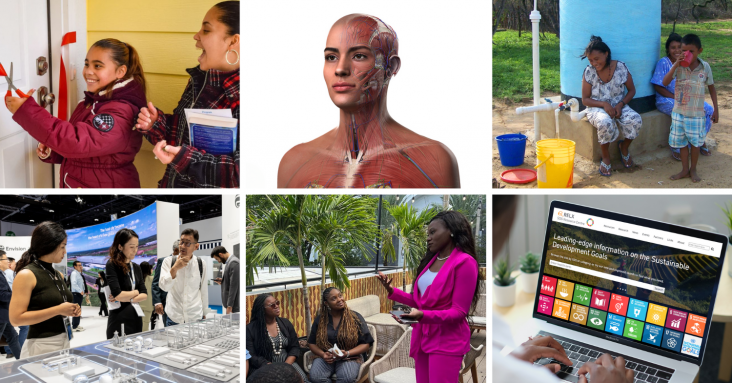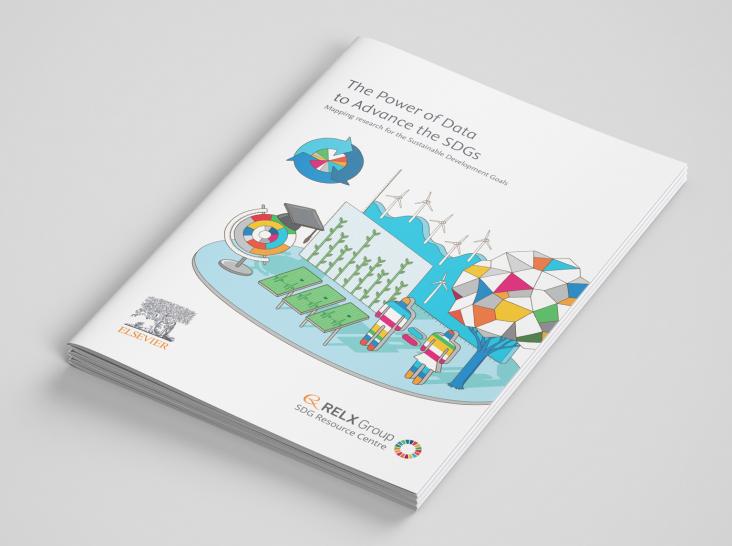Elsevier,
Measurement: Journal of the International Measurement Confederation, Volume 226, 28 February 2024
This paper seeks to contribute to pipeline leakage detection research through collecting and simulating leakage signals under different pressure strengths by combining experiments with numerical simulation. The findings point towards better detection in a real noise environment. Such research is vital in the context of increasing worldwide demand for water and insufficient water supply caused by pipeline leakage.
This chapter aligns with Goals 9, 11, 12 by emphasizing the responsible disposal of toxic building materials and providing guidance on selecting materials that have a positive effect on the health of occupants and the environment.

In 2023 the HPCC Systems Community Impact scholarship was announced as a part of an effort to support the Diversity & Inclusion focus areas at LexisNexis Risk Solutions. The HPCC Systems Community Impact Scholarship was launched in partnership with Scholarship America to provide two renewable $5,000 scholarships to female high school graduates from traditionally underrepresented backgrounds who plan to pursue a STEM (Science, Technology, Engineering and Math) undergraduate degree at an eligible college.
This article aligns with Sustainable Development Goal 9: Industry, Innovation, and Infrastructure. The research focuses on the green synthesis of nanoparticles using biological entities, such as microorganisms and plants, through nanobiotechnology processes. The use of these environmentally friendly methods has the potential to revolutionize biomedical applications, including cancer detection and treatment, as well as agricultural applications for crop improvement. Furthermore, green nanoparticles show promise in energy production and storage, offering cost-effective and sustainable solutions for future energy demands.

In this episode of the "World We Want" podcast, Márcia Balisciano interviews Filip Neele, Lead Scientist at TNO in Utrecht, the Netherlands. They discuss carbon capture and storage (CCS) technology as a “key” in energy transition and its role in supporting global sustainability.
This chapter advances the UN SDG goals 2 and 9 by highlighting the role AI can play in identifying crop improvement methods for sustainable agriculture.
This chapter advances the UN SDG goals 9 and 11 by highlighting the role AI tools can play in mitigating urban air pollution for improved urban air quality.

As we pass the halfway point for the SDGs, many of the goals are worryingly off track and progress on 85% of the target indicators has stalled or even reversed. Through our information, products and people, RELX remains committed to advancing the Goals. Here are some of the ways that we continue to support their achievement.

Access to information is critical in achieving the SDGs - empowering the public to make decisions, informing policy making and enabling effective implementation and monitoring. RELX businesses regularly produce and publish free to download reports and analytics that draw upon vast amounts of information and data in support of the SDGs. Explore some of the reports and tools developed to date.
Given that we are halfway to 2030, there is a greater need to accelerate our progress to SDGs. To the data gap, which is still a huge barrier for SDGs, Big Earth Data provide strong support to measure the status and trend of progress. Using Big Earth Data with global data acquisition and analysis capability, China can and should make more contributions to fill the data gap and give more data-driven suggestions for decision-makers for the world’s SDG efforts.
